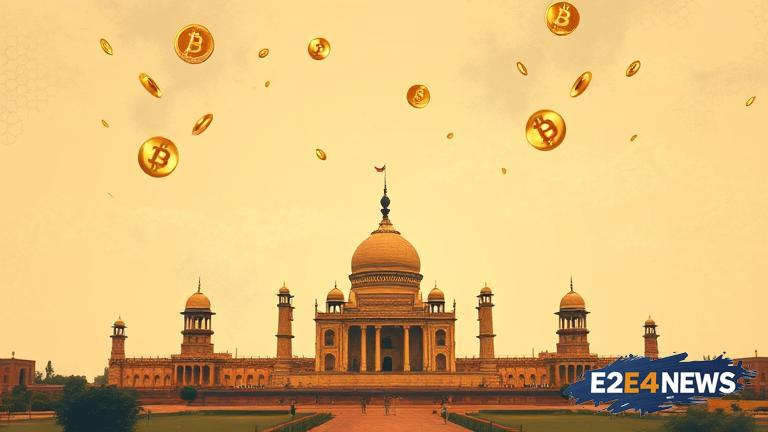The Indian government has recently stated that cryptocurrencies, also known as virtual assets, are not regulated in the country. This announcement has sent shockwaves throughout the cryptocurrency community, with many investors and enthusiasts expressing concerns about the future of digital currencies in India. According to the Ministry of Finance, the lack of regulation is due to the fact that cryptocurrencies are not considered legal tender in India. This means that they are not recognized as a legitimate form of currency and are not protected by the country’s financial laws. The government’s stance on cryptocurrencies has been unclear for some time, with many calling for greater clarity and regulation. The Reserve Bank of India (RBI) has previously warned against the use of cryptocurrencies, citing concerns about their potential use in illicit activities such as money laundering and terrorist financing. Despite this, the use of cryptocurrencies has continued to grow in popularity in India, with many citizens investing in and trading digital currencies. The lack of regulation has led to a number of concerns, including the risk of fraud and the potential for cryptocurrencies to be used for illicit purposes. Many experts have called for the government to establish clear regulations and guidelines for the use of cryptocurrencies, in order to protect investors and prevent illicit activities. The government’s decision not to regulate cryptocurrencies has also sparked concerns about the potential impact on the country’s economy. Some have argued that the lack of regulation could lead to a loss of revenue for the government, as well as a lack of investment in the country’s financial sector. Others have argued that regulation could stifle innovation and limit the potential of cryptocurrencies to drive economic growth. The debate about the regulation of cryptocurrencies is not unique to India, with many countries around the world grappling with the same issues. In recent years, a number of countries have established clear regulations and guidelines for the use of cryptocurrencies, including the United States, Japan, and Singapore. The Indian government’s decision not to regulate cryptocurrencies has been seen as a missed opportunity to establish the country as a leader in the field of digital currencies. As the use of cryptocurrencies continues to grow in popularity, it is likely that the government will be forced to revisit the issue and establish clear regulations and guidelines. The future of cryptocurrencies in India remains uncertain, with many investors and enthusiasts waiting with bated breath to see how the situation will unfold. The government’s decision has also sparked a debate about the role of cryptocurrencies in the country’s financial system, with some arguing that they have the potential to drive economic growth and others arguing that they pose a risk to the stability of the financial system. In conclusion, the Indian government’s decision not to regulate cryptocurrencies has sparked a heated debate about the future of digital currencies in the country. While some have argued that regulation is necessary to protect investors and prevent illicit activities, others have argued that it could stifle innovation and limit the potential of cryptocurrencies to drive economic growth. As the situation continues to unfold, it is likely that the government will be forced to establish clear regulations and guidelines for the use of cryptocurrencies in India.
